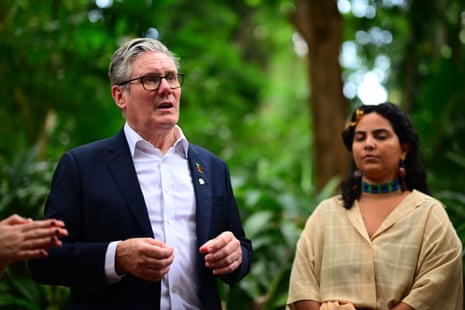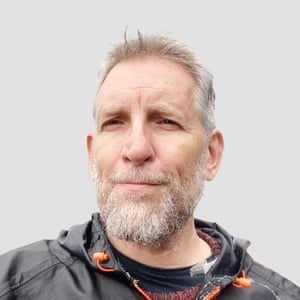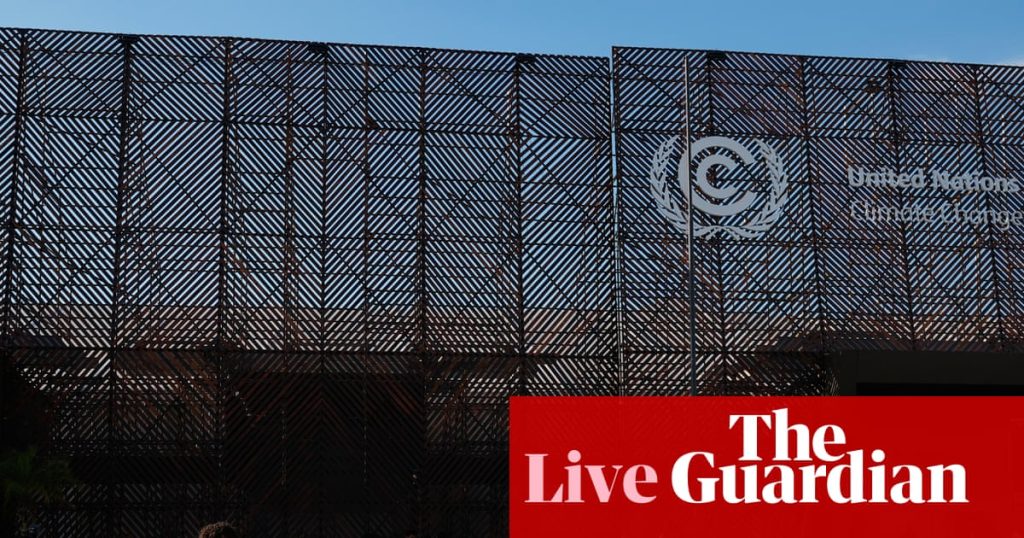
Fiona Harvey
Ministers and high-ranking officials from nearly 200 countries have gathered in the Amazonian city of Belem to discuss how to rein in the climate crisis, before catastrophic levels of global heating become inevitable, writes Fiona Harvey, Guardian environment editor.
On Sunday, carpenters and builders were still hard at work in the conference centre where the Cop30 UN climate summit will take place, unpacking boxes and erecting pavilions where countries will show off their commitment to tackling greenhouse gas emissions and shifting to a low-carbon economy.
By Monday, the pomp and ceremony were ready to begin. There is an element of deja vu here – world leaders have already visited Belem, jetting in last week to this same conference centre to join in round tables about climate action, preserving forests, boosting biofuels and ensuring social justice while the climate crisis bites.
More than 50 heads of state and government or their deputies took part in that “leaders’ summit” segment, on 6 and 7 November, including the UK’s Keir Starmer, the EU’s Ursula von der Leyen, and Germany’s Friedrich Merz. (Donald Trump, of course, has withdrawn the US from the Paris climate agreement and did not attend; nor did Russia’s Vladimir Putin; Xi Jinping of China and Narendra Modi of India also skipped the summit but have made friendly overtures to Brazil over Cop30.) They have all now departed and left the stage to their negotiating teams.

But these are climate talks with a difference. Brazil is refusing to countenance the standard form of tortuous negotiations that have characterised the last 30 years of nearly annual “conferences of the parties” (Cops) under the UN Framework Convention on Climate Change, the parent treaty to the Paris climate agreement, that was signed in 1992 in Rio de Janeiro.
Those were characterised by long and bitter sessions, often stretching late into the night, where negotiators re-stated entrenched positions for days on end before finally – sometimes – reaching a compromise conclusion that some present would frequently seek to back track on immediately afterwards.
Instead, Brazil insists, this will be “the Cop of implementation”. That means the real world impact of measures to combat the climate crisis today will take precedence over longwinged discussions of future promises.
“Negotiations need consensus,” said Andre Correa do Lago, president of Cop30. “But implementation is countries choosing what they want to do and executing what they have said they are going to do.”
The problem with that approach is that countries which chose to do very little may be able to get away with it. How Brazil intends to combat that tendency is yet to be seen.
The main outcomes of this Cop, instead of being a list of pledges as has become usual, are more likely to be a collection of “roadmaps” covering the key issues: a roadmap on finance, which has already been published; a roadmap on how to transition away from fossil fuels; a roadmap on how to scale up low-carbon energy and reduce greenhouse gas emissions in line with the target of limiting global heating to 1.5C above pre-industrial levels.
On some of these issues, it may not be possible to produce the final roadmap at this Cop – in the case of the transition away from fossil fuels, for instance, what is more likely is that a forum could be set up that will continue for several Cops before reporting.
Cop30 will cover enormous ground – from the future of energy, to the future of climate finance, to the need for social justice to accompany climate action. It will involve ministers, diplomats, local government officials, scientists, businesspeople, Indigenous people and representatives of all forms of civil society, from nearly every country in the world. Issues including health, biodiversity, nature, wildlife, water, the oceans, transport, migration, food, gender and technology will all be addressed at some point across the two weeks of talks.
The problem Cop exists to solve could scarcely be more urgent: scientists are warning that, as temperatures rise faster than at any point in at least 24,000 years, the world stands on the brink of a series of “tipping points” that could pitch us into greatly accelerated heating and unstoppable climate catastrophe.
But one question will dominate overall: the question of whether the collective will to solve this problem exists. Can the world come together, despite geopolitical headwinds and open conflict, despite the forces of division fanned by populism, despite the global tide of climate disinformation, despite influential voices claiming the climate somehow matters less than it did before the populists took over – and show the unity, mutual respect and spirit of cooperation that are desperately needed, if we are to face this existential threat?
Share

Jonathan Watts
The global south has put the north to shame in the run up to the Cop30 climate conference in Belém, writes Jonathan Watts, the Guardian’s global environment editor.
From heartrending testimonies of extreme weather disasters and conflicts exacerbated by droughts to inspiring examples of ambition in their climate plans, the less developed nations of the world have shown they are willing to step up and face the climate crisis even as some of the wealthiest countries most responsible for it walk away.
Ahead of the two-week gathering, only 106 out of 194 nations that signed up to the Paris agreement have submitted updated climate plans, known as nationally determined contributions (NDCs). This is down by a third from Cop26 in 2021. More than half of those who submitted were from the global south. The omissions include at least five of the G20 group of wealthy countries – Russia, Argentina, South Korea, Turkey and Saudi Arabia – according to the latest United Nations register of NDCs.
The number of presidents and prime ministers who attended last week’s climate summit is also down from previous editions. At its conclusion, only 44 leaders signed the Belém declaration, which warned: “Climate change, environmental degradation, and biodiversity loss are worsening hunger, poverty, and food insecurity.”
The planet’s three biggest emitters – China, the US and India – did not send state leaders to Belém, though the latter two nations at least sent representatives to address the gathering in a constructive manner.
The absences allowed Trump, Xi and Modi to avoid hearing of the horrifying experiences and requests for help from their counterparts in poorer nations who are suffering the consequences of those still-rising emissions. Delegate after delegate from Africa, Asia and South America stated that dire climate impacts are now the lived reality for millions of their people.
Tuvalu climate minister Maina Vakafua Talia said the US withdrawal from the Paris agreement and Trump’s denial of climate science showed “a shameful disregard for the rest of the world.” He said the dangers of inaction were evident in recent disasters like Hurricane Mellissa, which devastated Jamaica, Cuba and others Caribbean islands, and Typhoon Tino, which has killed more than 188 people in the Philippines. “The more we warm our oceans the more extreme these weather events are becoming,” he said. “There is no time in history when the world has faced such a threat.”
Pakistan’s climate secretary, Aisha Humera, said the climate crisis was the biggest human rights violation of our time. She said a 2022 a superflood had inundated a third of her country and caused $30bn dollars of damage. “We thought that was a one-in-a-century event, but just three years later we faced another flood of catastrophic proportions, washing away lives and livelihoods.” In Pakistan’s mountains, she said 13,000 glaciers were melting at unprecedented rates. “Recurring glacial outburst floods have become an annual nightmare,” she said. “This is not a cycle of disaster, it is a escalating cascade.”
Like several other climate afflicted countries, she said Pakistan needed the wealthy nations of the world, which were most to blame for the climate disasters, to face up to their responsibilities and make good on promises of financial support: “From the frontline of this crisis, we demand that we operationalise the loss-and-damage fund with billions not millions and make it available to countries like Pakistan.”
The grimmest testimonies came from delegates from war-torn nations who described how climate-induced problems were amplifying the damage afflicted by conflict. Even so, they had made the efforts to update their NDCs.
The ambassador of Sudan, Ahmed Eltigani Mohamed Swar, painted a nightmarish picture of climate collapse and violence: “An unprecedented rise in temperatures, along with recurring waves of drought and desertification. Devastating floods that threaten the livelihoods and food security of millions of citizens” and “armed conflicts that exacerbate the fragility of the state and drain its resources.” Outlining a vicious cycle, he said air and water pollution had also deteriorated due to attacks on industrial plants, oil storage facilities and forests. Despite this he said Sudan continues its unwavering commitment to the goals of the Paris agreement and was striving to implement its climate plans in the agriculture, energy and water sectors.
Palestine’s ambassador, Ibrahim Al-Zaben, said climate change intensified the already dire situation imposed on his people by the 58-year Israeli military occupation and more recent “war of extermination.” He described a worsening shortage of water and food, collapsing sewage systems and grave risks to public health. Despite the grim situation in Gaza, where he said there were a quarter of a million victims of the Israeli army, he spelled out how Palestine was trying to take steps to upgrade its climate plans and improve its sustainability and transparency. He called for global solidarity to stop greenhouse gas emissions, secure climate finance and improve environmental justice. In the face of all the challenges, he said Palestine remained steadfast. “Our message to the world and our appeal from this platform is a message of hope, resilience, and determination to contribute to a just, sustainable, peaceful, and free future, not only for our people but for our planet, for our future generations.”
While many observers in the global north lament the decline in the climate consensus, multilateralism and overseas development aid as inexorable, the hosts and many delegates at last week’s Belém summit spelled out alternatives and stressed the need for political solidarity.
One of the primary bones of contention is climate funding. On 5 November, Brazil and Azerbaijian (the hosts of last year’s and this year’s COP) unveiled a Baku-Belém Roadmap to raise $1.3tn so that poorer nations could cope with the climate crisis. The authors said the funds were available, noting that the target was less than 1% of the $180tn managed by pension funds and insurers worldwide. They said political will was needed to channel this money where it was needed more.
Some wealthier nations and groups, including the EU said they were aware of the need to support the worst-affected countries, but there were few specifics. Meanwhile the World Bank, other international institutions and many governments continue to pour huge sums into subsidising fossil fuels. A huge gap remains in financing expectations and delivery. Movement in this area will be key to a successful conference.
Most of the western media has blamed the low participation rates in Belém on a lack of accommodation and high prices, but this too is shifting responsibility onto the global south. There are certainly infrastructure problems, which is not surprising given this Amazonian municipality is one of the poorest host cities in the history of the Cop and one of the worst affected by rising temperatures. But a bigger reason for the weak turnout is just as likely to be that rich, high-emitting countries are turning their backs on the parts of the world that they have lived off for centuries and now condemn by their slow or non-existent action to phase out fossil fuel emissions.
Share

Fiona Harvey
Rich countries have lost enthusiasm for combating the climate crisis while China is surging ahead in producing and using clean energy equipment, the president of the UN climate talks has said, writes Fiona Harvey, Guardian environment editor.
More countries should follow China’s lead instead of complaining about being outcompeted, said André Corrêa do Lago, the Brazilian diplomat in charge of the Cop30 conference, which begins on Monday.
“Somehow the reduction in enthusiasm of the global north is showing that the global south is moving,” Corrêa do Lago told reporters in Belém, the city in the Amazonian rainforest where the fortnight-long Cop30 conference is taking place. “It is not just this year, it has been moving for years, but it did not have the exposure that it has now.”
He pointed to the world’s biggest emitter of greenhouse gases, China, which is also the biggest producer and consumer of low-carbon energy. “China is coming up with solutions that are for everyone, not just China,” he said. “Solar panels are cheaper, they’re so competitive [compared with fossil fuel energy] that they are everywhere now. If you’re thinking of climate change, this is good.”
Ministers and high-ranking officials from 194 countries will seek to forge plans at Cop30 to stay within, or as close as possible to, the limit of 1.5C of heating set out in the Paris agreement, to set a roadmap to phase out fossil fuels, and to ensure that poor countries receive the help they need.
Top of the agenda will be national plans on cutting greenhouse gas emissions, which currently would lead to a devastating 2.5C of heating. Vulnerable countries want to draw up a plan that will show how countries can outdo their current inadequate efforts and meet the Paris agreement targets.
Share
We try our best, but high level negotiations do not always make for the most-compelling news coverage. Nevertheless, it is still disappointing that UK national papers dedicated more space to advertising high carbon travel than to coverage of last year’s Cop talks.
According to research by the New Weather Institute, for the Badvertising campaign, UK papers gave 1,745 column inches over to advertisements for flights and cruises, compared to 1,540 inches to reporting on the climate talks on the key dates at the beginning and end of Cop29.
The total amount of ‘high carbon advertising’ – which includes high-carbon travel, products and services that are inseparable from the energy sector, banks who finance the fossil fuel industries, and supermarkets, which are key retailers of petrol and other high-carbon products – amounted to 5,086ins, more than three times the space given to coverage of the climate conference.
Badvertising call for a cigarette-style ban on advertising for high carbon products. The Guardian is the only national newspaper in the UK that has made a commitment to end advertising for coal, oil and gas companies.
Andrew Simms, a co-director of the New Weather Institute and a founder of the Badvertising campaign, said:
The science tells us that we must do everything possible to prevent catastrophic climate breakdown, but instead of discouraging climate pollution it is being actively promoted wherever you look, in ads for flights and big SUVs. Many climate challenges are hard, like changing energy systems and buildings, but it is easy to stop actively pushing high carbon, often luxury products and lifestyles.
Fossil fuels are like the new tobacco and we need to stop promoting them. Without action, the signal from scientists will be drowned out in the marketing noise from oil companies, airlines, and SUV makers trying to persuade us to consume as many high carbon goods and services as possible.
Share
There has already been significant wrangling over the Cop30 agenda, with Simon Evans, a journalist from Carbon Brief, posting on on Bluesky yesterday afternoon that the agenda was already on its fourth iteration.
“Agenda fights have been common in recent years,” Evans reports, citing similar disagreements ahead of Cop29 in Azerbaijan. The negotiations cannot actually get started until the parties agree on what it is they will talk about.
Among the potential items on the agenda are two from the “like-minded developing countries”, a bloc that includes Bolivia, China, India and Saudi Arabia, including one calling for a new, more ambitious finance goal and another for discussion of “unilateral trade-restrictive measures”.
Honduras, Suriname and Papua New Guinea want to discuss deforestation finance. Small island states want space in the agenda to discuss how to “accelerate implementation & drive ambition toward 1.5C”, with the current process “insufficient for addressing the need for accelerated action”, they say.
And the EU, meanwhile, wants to discuss reporting under Article 13, the provision of the UNFCCC which asks countries to report on their emissions.
“Many developing countries have yet to do this as required,” writes Evans. “[I] suspect this a way to put on them in response to calls for more finance…”
Share

Fiona Harvey
Ministers and high-ranking officials from nearly 200 countries have gathered in the Amazonian city of Belem to discuss how to rein in the climate crisis, before catastrophic levels of global heating become inevitable, writes Fiona Harvey, Guardian environment editor.
On Sunday, carpenters and builders were still hard at work in the conference centre where the Cop30 UN climate summit will take place, unpacking boxes and erecting pavilions where countries will show off their commitment to tackling greenhouse gas emissions and shifting to a low-carbon economy.
By Monday, the pomp and ceremony were ready to begin. There is an element of deja vu here – world leaders have already visited Belem, jetting in last week to this same conference centre to join in round tables about climate action, preserving forests, boosting biofuels and ensuring social justice while the climate crisis bites.
More than 50 heads of state and government or their deputies took part in that “leaders’ summit” segment, on 6 and 7 November, including the UK’s Keir Starmer, the EU’s Ursula von der Leyen, and Germany’s Friedrich Merz. (Donald Trump, of course, has withdrawn the US from the Paris climate agreement and did not attend; nor did Russia’s Vladimir Putin; Xi Jinping of China and Narendra Modi of India also skipped the summit but have made friendly overtures to Brazil over Cop30.) They have all now departed and left the stage to their negotiating teams.
But these are climate talks with a difference. Brazil is refusing to countenance the standard form of tortuous negotiations that have characterised the last 30 years of nearly annual “conferences of the parties” (Cops) under the UN Framework Convention on Climate Change, the parent treaty to the Paris climate agreement, that was signed in 1992 in Rio de Janeiro.
Those were characterised by long and bitter sessions, often stretching late into the night, where negotiators re-stated entrenched positions for days on end before finally – sometimes – reaching a compromise conclusion that some present would frequently seek to back track on immediately afterwards.
Instead, Brazil insists, this will be “the Cop of implementation”. That means the real world impact of measures to combat the climate crisis today will take precedence over longwinged discussions of future promises.
“Negotiations need consensus,” said Andre Correa do Lago, president of Cop30. “But implementation is countries choosing what they want to do and executing what they have said they are going to do.”
The problem with that approach is that countries which chose to do very little may be able to get away with it. How Brazil intends to combat that tendency is yet to be seen.
The main outcomes of this Cop, instead of being a list of pledges as has become usual, are more likely to be a collection of “roadmaps” covering the key issues: a roadmap on finance, which has already been published; a roadmap on how to transition away from fossil fuels; a roadmap on how to scale up low-carbon energy and reduce greenhouse gas emissions in line with the target of limiting global heating to 1.5C above pre-industrial levels.
On some of these issues, it may not be possible to produce the final roadmap at this Cop – in the case of the transition away from fossil fuels, for instance, what is more likely is that a forum could be set up that will continue for several Cops before reporting.
Cop30 will cover enormous ground – from the future of energy, to the future of climate finance, to the need for social justice to accompany climate action. It will involve ministers, diplomats, local government officials, scientists, businesspeople, Indigenous people and representatives of all forms of civil society, from nearly every country in the world. Issues including health, biodiversity, nature, wildlife, water, the oceans, transport, migration, food, gender and technology will all be addressed at some point across the two weeks of talks.
The problem Cop exists to solve could scarcely be more urgent: scientists are warning that, as temperatures rise faster than at any point in at least 24,000 years, the world stands on the brink of a series of “tipping points” that could pitch us into greatly accelerated heating and unstoppable climate catastrophe.
But one question will dominate overall: the question of whether the collective will to solve this problem exists. Can the world come together, despite geopolitical headwinds and open conflict, despite the forces of division fanned by populism, despite the global tide of climate disinformation, despite influential voices claiming the climate somehow matters less than it did before the populists took over – and show the unity, mutual respect and spirit of cooperation that are desperately needed, if we are to face this existential threat?
Share
Welcome to the Cop30 live blog! I’m Guardian environment correspondent Damien Gayle, and I will be taking you through the first few hours of our live coverage of the UN climate summit taking place in Belém, Brazil.
I’ll be collating all the latest dispatches from our reporters on the ground, the files from the news agencies and any bits and pieces that appear on social media to try to give you the best possible picture of the summit as it unfolds.
This morning we will see the opening plenary for Cop30, where the first point of order will be to vote on an agenda, since at the moment it remains unclear what exactly will be under discussion during the two-week summit.
Andre Correa do Lago, the Cop30 president, said countries had been wrangling for months over what to include, a process he described as a healthy exchange of priorities. Brazil’s president Lula has said he hopes countries will consider setting a plan for quitting fossil fuels, and other possible issues for the agenda include deciding how countries will cut emissions further, with their current plans falling short of what’s needed to limit extreme warming.
Share

